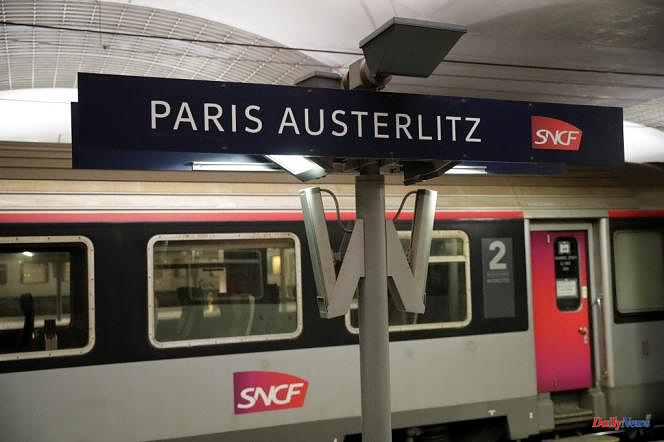The line of despair? Nothing is going well on the Paris-Orléans-Limoges-Toulouse (POLT) line and elected officials, economic players and users of the regions crossed find it hard to believe that the work undertaken and the purchase of new trains will soon improve the situation. "It's not very far now!" We are almost there, ”reassured the CEO of SNCF, Jean-Pierre Farandou, on March 3 during a large meeting in Limoges.
The bright future promised to the POLT is the renovation of the rails and catenaries, a hint of modernization of the infrastructures, a facelift at the stations and the purchase of new trains from the Spanish manufacturer CAF. Everything must be finished by the end of 2026, for a total investment of nearly 2.5 billion euros.
“The consequence is the works,” Mr. Farandou added. However, these essential works disrupt even more the circulation of trains already hampered by various damage, encounters with wild boars, heat waves or frost. Something to exasperate travelers.
Mayors, deputies, senators, presidents of departments, regional councilors, economic officials and users complained at length on Friday about frequent delays, untimely cancellations, longer journey times, canceled stops and lack of communication from the SNCF. .
"Today, it is no longer possible to agree on a reasonable meeting in Paris without having the fear of a delay or a cancellation", regretted the president of the chamber of commerce and industry of Limoges, Pierre Massy. “It is the attractiveness of our companies [and] our territories that takes a hit. Legrand, a CAC 40 group based in Limoges, sounded the alarm in December, threatening to move if the connection with Paris – in 3 hours 15, at best – does not improve.
In practice, 19% of trains were more than 10 minutes late last year, according to the Intercités management of SNCF Voyageurs. Many round trips have been canceled because of the works.
"Big Downgrade"
"We are desperate", launched the president of the departmental council of Corrèze Pascal Coste (Les Républicains), worried about the "great downgrading that our departments are experiencing". "What did we do to you?" “Questioned his colleague from Lot, Serge Rigal (various left), regretting that his department only sees five trains pass a day, “when they arrive”.
The elected officials of Occitanie recalled that the POLT ended with a "T" like Toulouse, and that the line, beyond Brive-la-Gaillarde where many trains stop, also served Souillac, Gourdon, Cahors and Montauban. "There is a trust to be recreated," summed up Creuse Senator Jean-Jacques Lozach (Socialist Party), referring to "the line of aborted projects, the line of disappointments, the line of despair".
Tilting trains have been mentioned, a high-speed line between Poitiers and Limoges has also been imagined... Without result, while the 713 kilometers of POLT railway tracks were aging, like the locomotives and the venerable Corail cars. Jean-Pierre Farandou now promises for 2026 "rebuilt tracks, new equipment and spruce stations".
"It's not talk as I've heard, but a fact. A legitimate, expected, necessary catch-up "after years of underinvestment, argued Minister Delegate for Transport Clément Beaune, who came by train to Limoges to lead the meeting and listen to this flood of complaints. “We sometimes paid too much attention to new projects (…), and not enough attention to existing ones”, he regretted.
According to him, the renovated POLT will be, like the Paris-Clermont – also in poor condition – a foretaste of the 100 billion euro rail reconquest plan announced on February 24 by Prime Minister Elisabeth Borne. In the meantime, "we have to hold on with old equipment, on a still dilapidated line, and work", warned Mr. Farandou.
The SNCF is advancing a "quality charter" with more services, an effort to inform passengers, more visibility on the work schedule, increased monitoring of frost, running locomotives and more prosaically toilets in good condition. Minister Clément Beaune has undertaken to take stock every three months.












